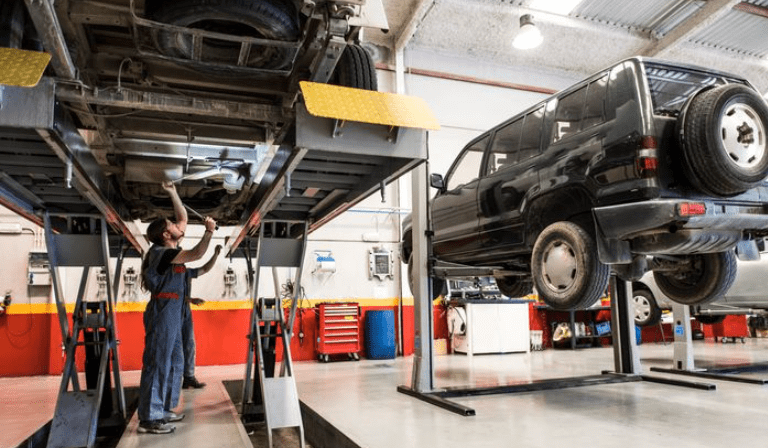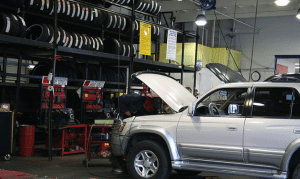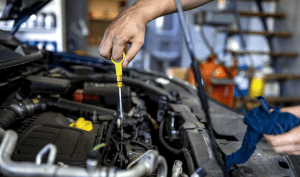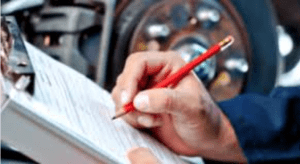Proper car repair and maintenance are essential for ensuring the longevity and optimal performance of your vehicle. Whether you’re a seasoned car owner or a new driver, understanding the fundamentals of maintaining and repairing your vehicle is crucial. This comprehensive guide will delve into various aspects of car repair and maintenance, providing you with valuable insights and tips to keep your vehicle in top condition.
Importance of Regular car repair and maintenance
Regular car repair and maintenance is the cornerstone of ensuring your vehicle’s longevity and performance. By adhering to scheduled maintenance routines, such as oil changes, tire rotations, and brake inspections, you can prevent potential issues and identify any underlying problems early on, saving you from costly repairs down the road.
Essential car repair and maintenance tips for every driver
Proper car repair and maintenance is crucial for ensuring the safety, longevity, and optimal performance of your vehicle. Whether you’re a seasoned driver or a new car owner, implementing essential maintenance practices can help you avoid potential issues and costly repairs. Here are some fundamental car maintenance tips that every driver should follow:
- Regular Fluid Checks: Monitor and replenish essential fluids, including engine oil, coolant, brake fluid, and transmission fluid, to ensure proper vehicle function and prevent potential damage.
- Tire Care: Regularly check tire pressure, tread depth, and overall condition to maintain optimal traction, improve fuel efficiency, and ensure a safe driving experience.
- Brake Inspections: Conduct routine brake inspections to identify any signs of wear or brake fluid leaks, ensuring the braking system operates effectively and reliably.
- Battery Maintenance: Inspect the battery regularly, clean terminals, and ensure proper connections to prevent unexpected breakdowns and extend the battery’s lifespan.
- Scheduled Service Intervals: Adhere to the manufacturer’s recommended service intervals for tasks such as oil changes, filter replacements, and comprehensive vehicle inspections to maintain peak performance.
- Lights and Signals: Regularly check and replace any malfunctioning lights, including headlights, taillights, turn signals, and brake lights, to ensure visibility and safety on the road.
- Air Filter Replacement: Replace the air filter as recommended to maintain optimal engine performance and prevent the accumulation of dirt and debris.
- Wiper Blade Maintenance: Inspect and replace worn-out or damaged wiper blades to ensure clear visibility during inclement weather conditions.
- Exhaust System Checks: Regularly inspect the exhaust system for leaks or damage to prevent hazardous emissions and maintain the efficiency of the vehicle’s operation.
- Interior and Exterior Cleaning: Regularly clean both the interior and exterior of the vehicle to preserve its aesthetic appeal and prevent the accumulation of dirt and debris that can lead to corrosion and damage over time.
By incorporating these essential car repair and maintenance tips into your routine, you can ensure the longevity and optimal performance of your vehicle while promoting a safe and enjoyable driving experience for you and your passengers.
A Comprehensive Guide to Understanding Comprehensive Car Insurance
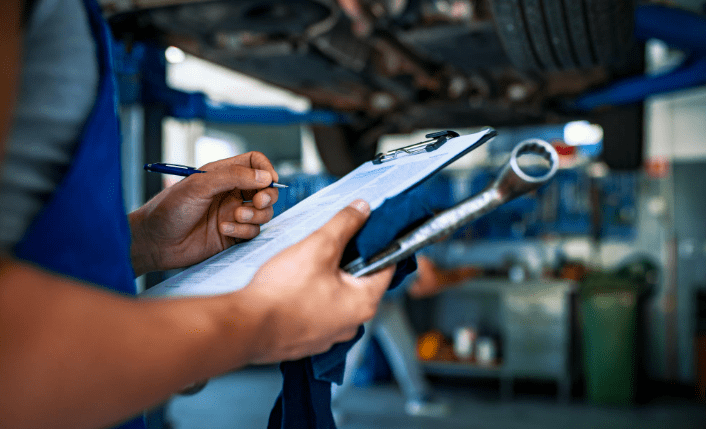
Common car problems and how to fix them – car repair and maintenance
Here are some common car problems and how to fix them during car repair and maintenance:
-
Dead battery: A dead battery is one of the most common car problems. It can be caused by a variety of factors, such as leaving the headlights on or having a loose alternator belt. To fix a dead battery, you can jump-start your car or replace the battery. If you are not comfortable jump-starting your car, or if the battery is old, it is best to replace it.
-
Flat tire: A flat tire is another common car problem. It can be caused by a puncture from a nail or other object, or by a slow leak. To fix a flat tire, you can use a tire repair kit or replace the tire. If you are not comfortable replacing the tire yourself, you can take it to a tire shop.
-
Overheating engine: An overheating engine can be caused by a variety of factors, such as a low coolant level, a faulty thermostat, or a blocked radiator. To fix an overheating engine, you should pull over to the side of the road and turn off the engine. Once the engine has cooled down, you can check the coolant level and add more coolant if necessary. If the coolant level is full, you may need to take your car to a mechanic to have the thermostat or radiator checked.
-
Check engine light: The check engine light can come on for a variety of reasons, such as a loose gas cap or a malfunctioning oxygen sensor. To fix a check engine light, you need to have the car’s computer scanned for codes. Once you know what the codes mean, you can fix the problem yourself or take the car to a mechanic.
-
Brake problems: Brake problems can be dangerous, so it is important to get them fixed as soon as possible. Common brake problems include squealing brakes, grinding brakes, and soft brakes. If you are experiencing any brake problems, you should take your car to a mechanic to have the brakes inspected and repaired.
-
Transmission problems: Transmission problems can also be expensive to fix, so it is important to get them fixed as soon as possible. Common transmission problems include slipping gears, hard shifting, and delayed shifting. If you are experiencing any transmission problems, you should take your car to a mechanic to have the transmission inspected and repaired.
-
Alternator failure: The alternator is responsible for charging the battery. If the alternator fails, the battery will eventually die and the car will not start. If you are experiencing alternator problems, you should take your car to a mechanic to have the alternator replaced.
-
Starter problems: The starter is responsible for starting the engine. If the starter fails, the engine will not crank. If you are experiencing starter problems, you should take your car to a mechanic to have the starter replaced.
-
Fuel system problems: Fuel system problems can cause a variety of problems, including engine stalling, hesitation, and poor fuel economy. If you are experiencing any fuel system problems, you should take your car to a mechanic to have the fuel system inspected and repaired.
-
Electrical problems: Electrical problems can cause a variety of problems, such as lights that do not work, windows that do not go up or down, and power locks that do not work. If you are experiencing any electrical problems, you should take your car to a mechanic to have the electrical system inspected and repaired.
These are just a few of the most common car problems. If you are experiencing any other problems with your car, you should take it to a mechanic to have it diagnosed and repaired.
Westside Collision Center: Your Trusted Partner for Fulshear Car Repair

How to save money on car repair and maintenance
Maintaining your vehicle doesn’t have to be a financial burden. By implementing cost-effective strategies and proactive measures, you can effectively save money on car repair and maintenance without compromising the quality of service. Here are some practical tips to help you minimize expenses while ensuring the longevity and optimal performance of your vehicle:
- DIY Maintenance: Learn to handle basic maintenance tasks such as changing the oil, replacing air filters, and checking tire pressure to avoid unnecessary service costs.
- Regular Inspections: Conduct routine inspections to identify potential issues early on, preventing minor problems from escalating into costly repairs.
- Compare Service Costs: Obtain quotes from various reputable auto repair shops to compare service costs and choose the most cost-effective option without sacrificing quality.
- Prioritize Preventive Maintenance: Adhering to scheduled maintenance routines can help prevent major issues, saving you from expensive repairs in the long run.
- Use Quality Parts: Opt for high-quality, reliable parts that may cost more initially but can result in longer-lasting performance and reduced replacement frequency.
- Negotiate Service Prices: Don’t hesitate to negotiate service prices or inquire about discounts, especially for routine maintenance tasks and regular servicing.
- Keep Records and Receipts: Maintain a detailed record of all maintenance and repair activities, including receipts, to track expenses and ensure accountability.
- Research Warranty Coverage: Understand your vehicle’s warranty coverage and utilize it for applicable repairs and maintenance services to avoid unnecessary out-of-pocket expenses.
- Seek Second Opinions: When facing major repairs, consult multiple mechanics to obtain different opinions and quotes, ensuring you make informed decisions about necessary services.
- Educate Yourself: Stay informed about your vehicle’s specific maintenance needs and potential issues to make knowledgeable decisions and avoid unnecessary repairs.
By following these practical tips and adopting a proactive approach to car repair and maintenance, you can effectively save money while ensuring the safety, reliability, and longevity of your vehicle.
Car Repair and Maintenance in Houston TX
In Houston, TX, car repair and maintenance services are readily available, catering to a diverse range of vehicle needs. Local service centers offer comprehensive maintenance packages, including oil changes, tire rotations, and brake inspections, to ensure optimal vehicle performance.
With experienced mechanics and modern facilities, Houston provides efficient solutions for various car issues, from engine repairs to electrical system diagnostics. Vehicle owners can rely on the expertise of Houston-based professionals to address routine maintenance tasks and handle any necessary repairs promptly, ensuring the safety and reliability of their vehicles on the road.
Budgeting for car repair and maintenance
Effective budgeting for car repairs and maintenance involves understanding the potential costs of routine maintenance, as well as being prepared for unexpected repairs. Setting aside a dedicated amount for vehicle upkeep and considering the vehicle’s age, mileage, and specific maintenance requirements can help you manage expenses and avoid financial surprises.
DIY vs. Professional Car Repair And Maintenance
While some minor maintenance tasks can be performed by vehicle owners with adequate knowledge and tools, complex repairs and intricate diagnostic procedures are best left to certified mechanics. Knowing when to seek professional assistance and when to undertake simple maintenance tasks yourself can save you time, money, and potential complications.
When to take your car to a mechanic?
Take your car to a mechanic when you notice unusual noises, warning lights, decreased performance, or any unfamiliar smells. Additionally, seek professional assistance for routine maintenance tasks, such as oil changes, tire rotations, and brake inspections, as recommended by the manufacturer. Regular check-ups can prevent potential issues from escalating into costly repairs.
How to choose a reputable mechanic?
Choose a reputable mechanic by seeking recommendations, checking online reviews, verifying certifications and experience, inquiring about warranties, and assessing their communication and transparency. A trustworthy mechanic will prioritize customer satisfaction, offer fair pricing, and provide clear explanations of the services needed.
What to expect during a car repair and maintenance?
During a car repair and maintenance, expect an initial assessment of the issue, a clear explanation of the required repairs, an estimate of the costs, and a timeline for completion. Additionally, expect transparent communication, updates on the repair progress, and a thorough inspection before the vehicle is returned.
How to maintain your car’s warranty?
Maintain your car’s warranty by following the manufacturer’s recommended maintenance schedule, using genuine parts and fluids, keeping detailed records of all maintenance activities, and addressing any issues promptly at authorized service centers. Additionally, avoid unauthorized modifications or repairs that may void the warranty.
How to prepare your car for winter?
Prepare your car for winter by checking the battery, ensuring proper tire tread and pressure, using winter-grade fluids, including antifreeze and windshield wiper fluid, and installing winter tires if necessary. Additionally, keep an emergency kit in the vehicle, including essentials like blankets, a flashlight, and extra clothing.
How to maintain your car’s appearance?
Maintain your car’s appearance by regularly washing and waxing the exterior, cleaning the interior, using protective floor mats, and addressing any scratches or dents promptly. Additionally, apply paint sealant to protect the paint from environmental damage, and park in shaded areas or use car covers to prevent sun damage.
Conclusion for car repair and maintenance
In conclusion, prioritizing regular car repair and maintenance is essential for ensuring the safety, longevity, and performance of your vehicle. By following the recommended maintenance checklist, familiarizing yourself with common car issues, and budgeting effectively for potential repairs, you can maintain a well-functioning vehicle and enjoy a smooth and hassle-free driving experience for years to come.


